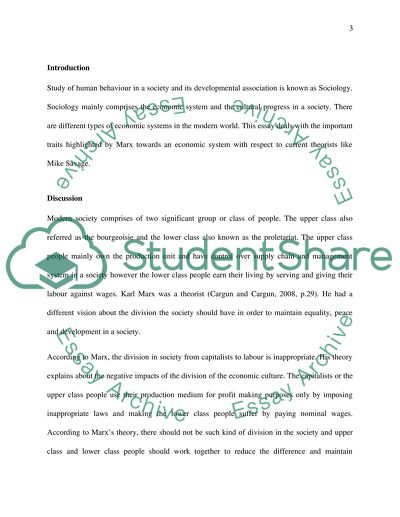How does Marxs analysis of social class differ from theories of today Essay. Retrieved from https://studentshare.org/sociology/1636879-how-does-marxs-analysis-of-social-class-differ-from-theories-of-today
How Does Marxs Analysis of Social Class Differ from Theories of Today Essay. https://studentshare.org/sociology/1636879-how-does-marxs-analysis-of-social-class-differ-from-theories-of-today.


